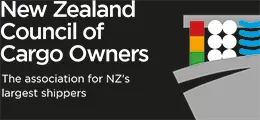The New Zealand Shippers Council (NZSC) supports a call by the Global Shippers’ Forum (GSF) for the shipping industry to reach agreement on a market-based measure for carbon reduction – or risk having rules enforced.
The GSF has released a statement to coincide with the COP21 climate change talks in Paris outlining its view on how the maritime sector should address the issue. It is keen to avoid a patchwork approach of national CO2 targets which would be complex to manage and wants the shipping industry to be proactive in agreeing voluntary measures. The EU is already proceeding with its own Monitoring, Verification and Reporting system in the absence of an IMO agreement.
NZSC Chair Mike Knowles said any action agreed must have an achievable objective of reducing carbon emissions. “It can’t just be a pure tax on bunker fuel that would, more than likely, just be passed on to shippers to bear with no reduction in emissions,” he said.
Shippers are under increasing pressure to respond to the climate change challenge – they must understand, monitor and report their supply chain carbon footprint in order to meet their reporting and regulatory obligations. However, they are dependent on the shipping industry to provide accurate data on emissions and the GSF believes urgent action is now needed to agree targets.
Chris Welsh, Secretary-General of the GSF, said: “All stakeholders agree that additional measures are needed to reduce CO2 emissions from the maritime sector. The debate now is how to get this done. We believe the International Maritime Organisation (IMO) should retain responsibility for this issue given its strong track record, but more progress is needed on appropriate Market-Based Measures (MBM).
“It is crucial to select a measure that will incentivise technical and operational measures to reduce CO2 and not simply pass on additional costs to shippers. The Ship Efficiency Credit Trading (SECT) proposed by the United States comes closest to meeting the principles for a good MBM set out by GSF”.
GSF says the shipping industry needs to set its own challenging but achievable voluntary CO2 reduction targets for the maritime sector or risk targets being imposed. Progress is currently being made with the development of a global data collection system but GSF is calling on the IMO to accelerate progress on MBMs, which have been debated for the last few years without reaching a consensus.
GSF members support MBMs that incorporate the following principles:
– Transparent measurement and recording of fuel usage and activity data – Improvements in operational efficiency
– Transparency of CO2 emissions and interventions
The Ship Efficiency Credit Trading with Efficiency Standards (SECT) proposal, which GSF favours, would incentivise operational and technical measures to reduce CO2 emissions.
GSF opposes a global bunker fuel levy approach, which risks passing costs on to shippers and distorting trade without reducing maritime CO2 emissions. Such an approach has been rejected by the equivalent global body for aviation (ICAO) for the same reason.
A copy of the GSF policy statement: CO2 emissions from the maritime sector can be found on the GSF website http://www.globalshippersforum.com/
For more information:
Mike Knowles,
Chair New Zealand Shippers’ Council Telephone: 021 515 423
Notes for editors:
About The New Zealand Shippers’ Council
www.shipperscouncil.co.nz
The New Zealand Shippers’ Council represents the supply chain interests of major New Zealand shippers, with members across all sectors including importers, exporters, ports, freight forwarders, road and rail. Collectively, Council members account for the majority of New Zealand’s total exports by volume annually.
About The Global Shippers’ Forum
www.globalshippersforum.com
The Global Shippers’ Forum (GSF) is the global voice for shippers, created in 2006 as the successor to the Tripartite Shippers’ Group, first organised in 1994. Like the Tripartite Shippers’ Group, the GSF represents the interests of various national and regional shippers’ organisations in Asia, Europe, North and South America and Africa. The GSF is focused on the impact of commercial developments in the international freight transportation industry and the policy decisions of governments and international organisations that affect shippers and receivers of freight. The GSF was formally incorporated and registered as a non- governmental organisation in the United Kingdom in June 2011.

